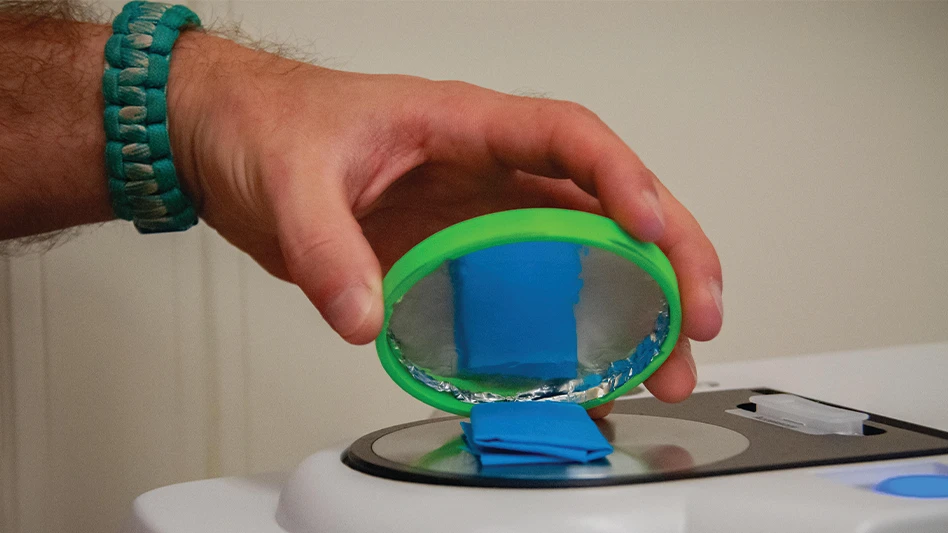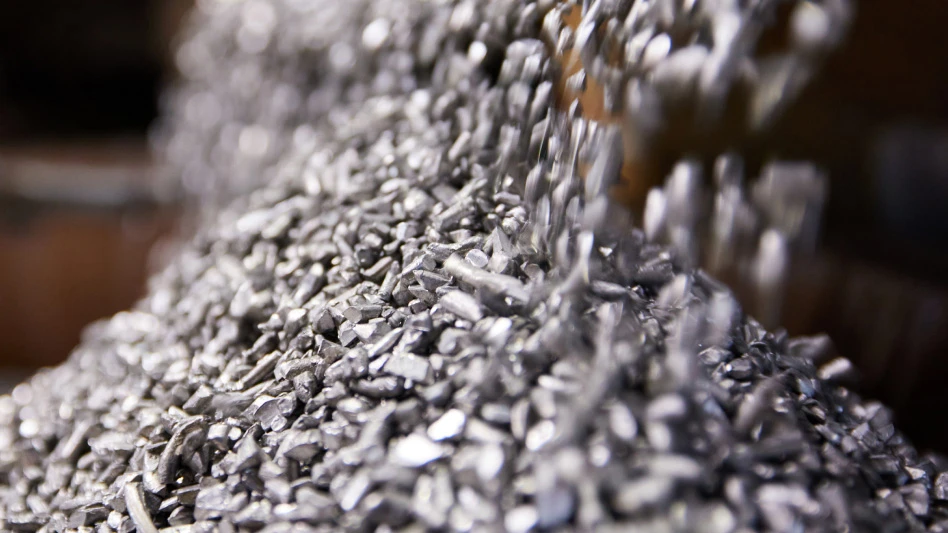
Illustration by Kragler Immobilien courtesy of Hydro
Hydro says it has delivered the first aluminum profiles made with 100 percent-postconsumer recycled aluminum to the Innovationsbogen project in Augsburg, Germany. The Hydro Circal 100R aluminum reduces CO2 emissions by 527 metric tons and is enabling decarbonization of Europe’s building industry, the company says.
Hydro, through its building system brand Wicona, says it is the first aluminum producer in the world to deliver aluminum made with near-zero carbon footprint, which is defined having a footprint of less than 0.5 kilograms of CO2 emissions per kilogram of aluminum throughout the value chain, to a building project in Europe. Wicona will deliver 85 metric tons of door, window and curtain walling profiles made from Circal 100R.
Hydro produced the first batch of Circal 100R in April of last year.
Innovationsbogen is the first construction project to be built as part of the new Walter Innovation Campus in the Augsburg Innovation Park. Construction is scheduled to be completed by the fourth quarter of this year.
“Covering such a high-profile building in Europe with a near-zero aluminum façade is a milestone achievement for Hydro,” says Eivind Kallevik, executive vice president of Hydro Aluminium Metal. “We are proud to partner with forward-leaning customers to lower their carbon footprint. This landmark project in Augsburg, Germany, is part of Hydro’s contribution to decarbonize the biggest industries in the world using low-carbon, recycled aluminum.”
Henri Gomez, senior vice president of Hydro Building Systems, says, “Hydro Circal 100R has provided completely new possibilities for architects and builders to reduce the climate impact of buildings. With 100 percent-recycled-postconsumer aluminum, we can make another step change and prove that [a] zero-carbon footprint in buildings is possible. It is an important contribution to a fully circular economy.”
The company says using 100 percent-postconsumer aluminum scrap is a challenge because of the many complex elements a product brings with it after it reaches end of life, such as paint, plastics and other contaminants.
"I am proud to say that our recycling organization has embraced the challenge of using complex scrap types,” Kallevik says. “The production milestone was only possible because of our competent workforce and Hydro's state-of-the-art recycling technology, which includes sorting, shredding and melting technologies.”
Latest from Recycling Today
- APR launches Recycling Leadership Awards
- Private equity firm announces majority investment in Sprout
- Author predicts spike in silver’s value
- SWANA webinar focuses on Phoenix recycling collaboration
- Domestic aluminum demand up through Q3 2024
- IntelliShift honored at IoT Breakthrough Awards
- Ace Green Recycling finalizes plans for battery recycling site in India
- Ambercycle, Benma partner to scale circular polyester





